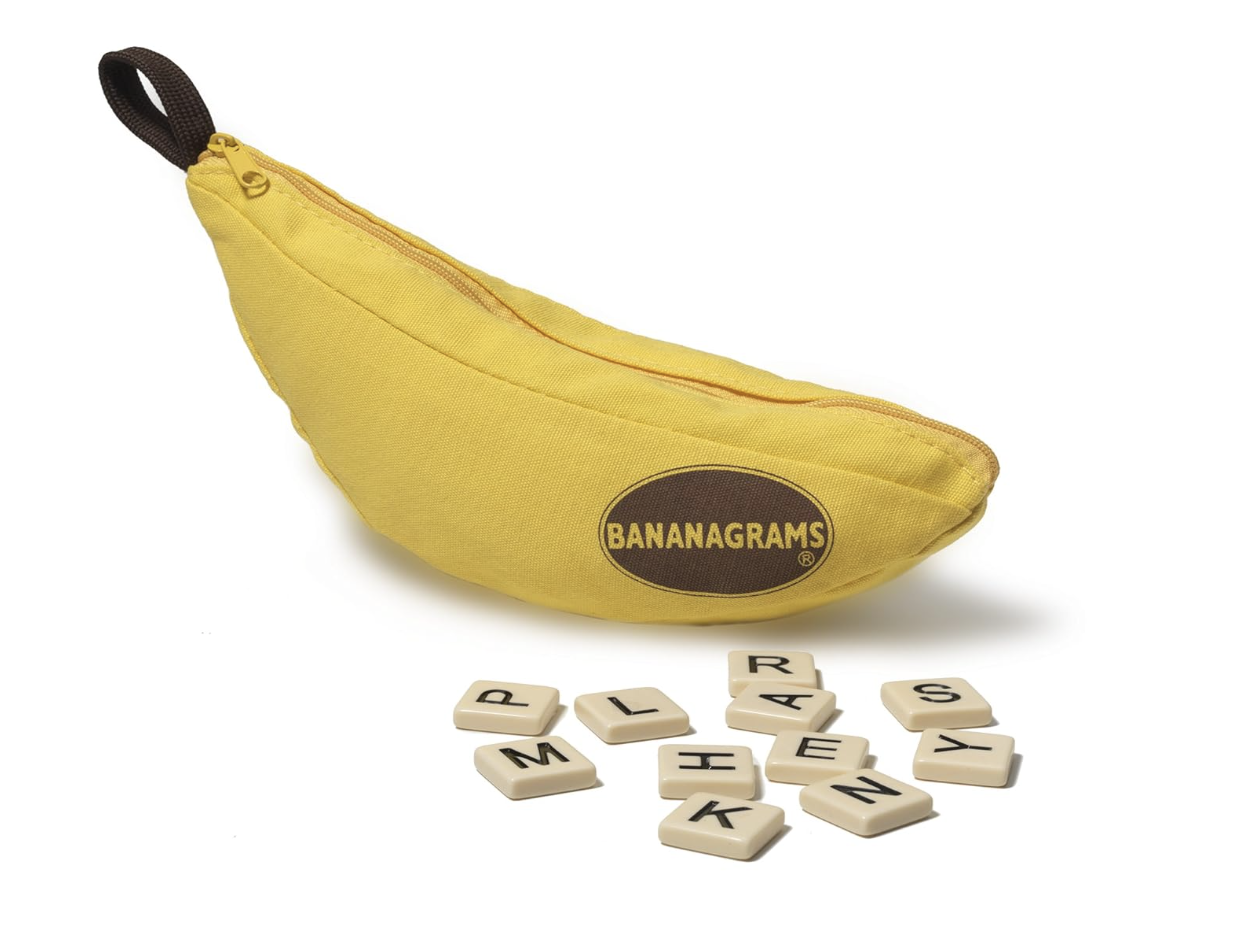Bananagrams is a game similar to Scrabble without a board. The game is played by engaging with small tiles – each tile has a letter (A – Z) on one side and is blank on the other – and using these tiles to create words. All that is needed to play the game are these lettered tiles; tiles come in a small yellow pouch that is shaped like a banana, which is central to the banana theme.
The gameplay itself is not absolutely related to the theme of bananas (the central goal is to create words from tiles), but gameplay mechanics nonetheless are labeled in ways that contribute to the ‘banana’ theme. At specific intervals in gameplay, players announce “split” and “peel” which both play on the banana theme.
The game is extremely accessible and versatile – anyone can play, and as long as players have access to a flat surface, the game can be played anywhere. Additionally, the game itself is both competitive and individualized. Depending on who is playing and what the mood is, players can make the game tense and competitive or laid back and noncompetitive. Regardless of how players decide to engage with the game, the gameplay and mechanics remain common.
Players begin the game with a set amount of tiles, with the blank side visible and facing up. The number that players take at the start depends on how many players there are, which contributes to the game’s strong balance. The game begins when a player says “split”, and at this point all players flip over their tiles and begin forming words. All words must connect in a manner similar to scrabble.
All players work at the same time to create words and use all of their tiles. During gameplay, players are able to talk to each other, and this can make the game very social. Since not all tiles are selected at the start of the game, all remaining tiles are blank side visible and facing up in the center. This pool of tiles is drawn from each time a player has run out of all of their tiles and announced “peel”. When a player says peel, all players must draw one tile.
There is an element of strategy involved – when a player does not want a tile (if they have a Q without a U, for example) they may “dump” that tile. When a player dumps, they get rid of one and must pick up three from the pool. This exchange also creates an element of balance between risk/reward of trying to improve your tiles.
The game continues until all the tiles in the pool are gone. At this point, the person who has first completed their ‘board’ (all of their connecting words that have been made out of the tiles) is done with gameplay. Other players are still able to continue forming words until they have run out of tiles. This soft end also is a nice element of the game, because it takes away the stress for players of losing (or not being able to complete) their board because of another player.
Overall, I think bananagrams is a great game. The simple game mechanics make it extremely versatile and accessible, and the game is fairly quick to play. Also, the game is from Providence, RI where I have a lot of family, so it’s fun to have seen the storefront they have and to overall have good associations with the yellow banana pouch.

© 2025 IGD.